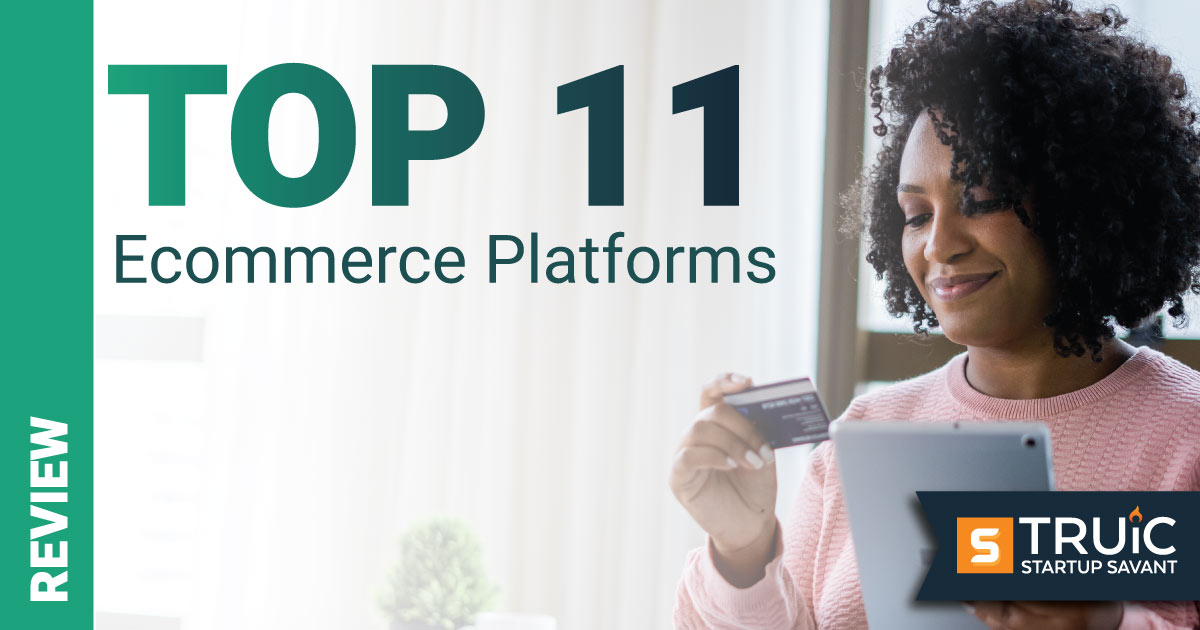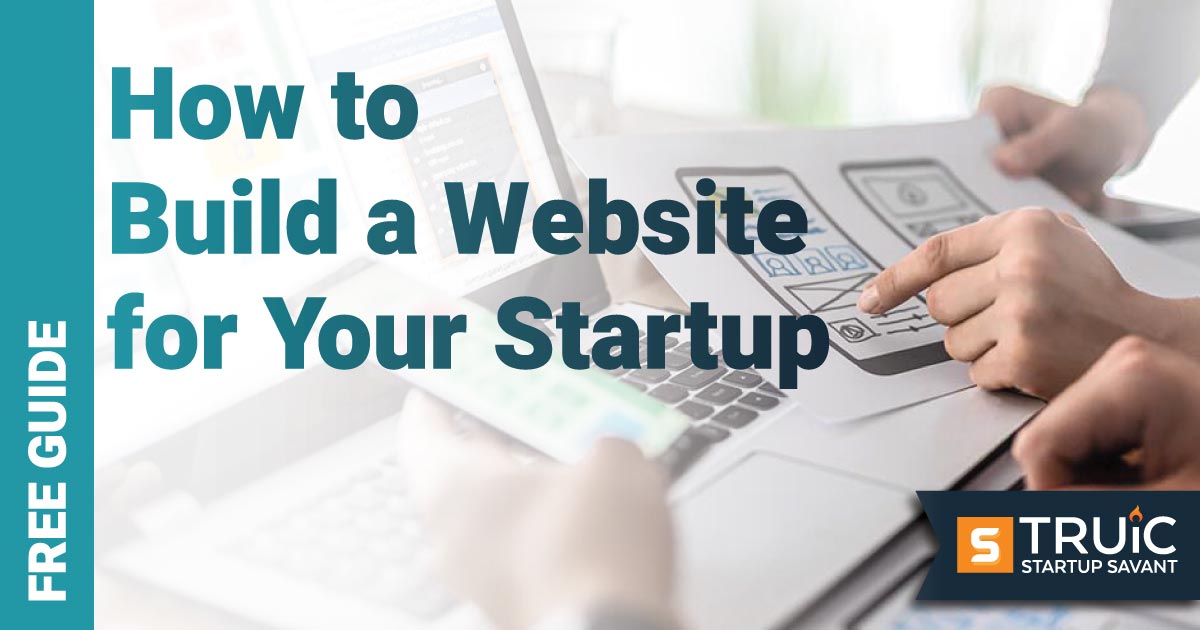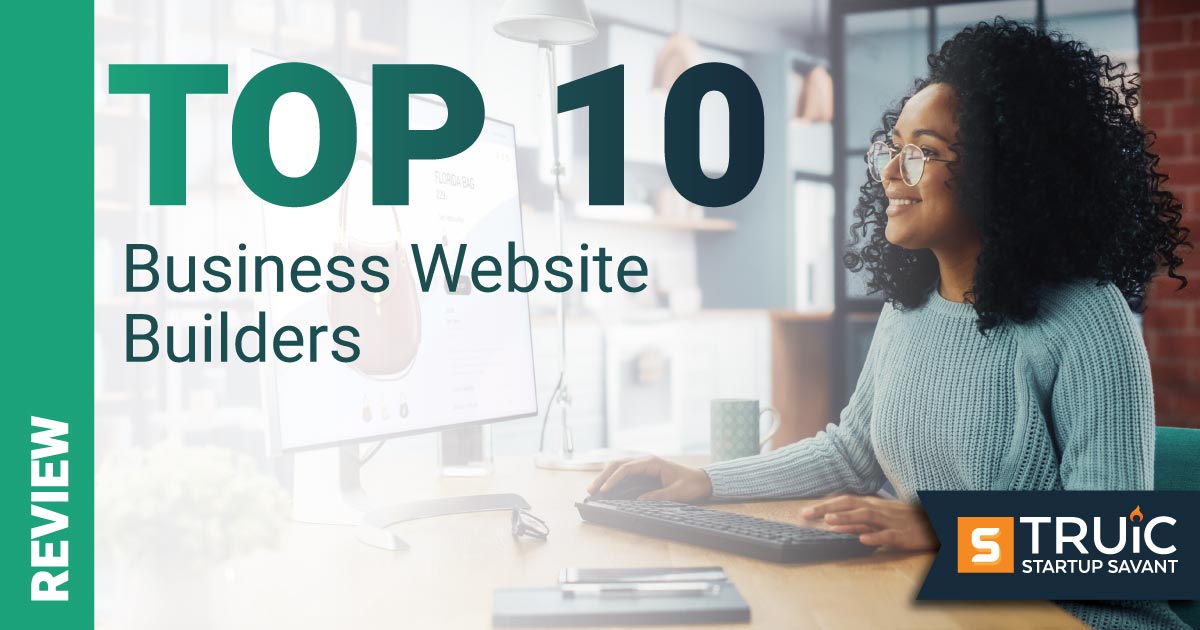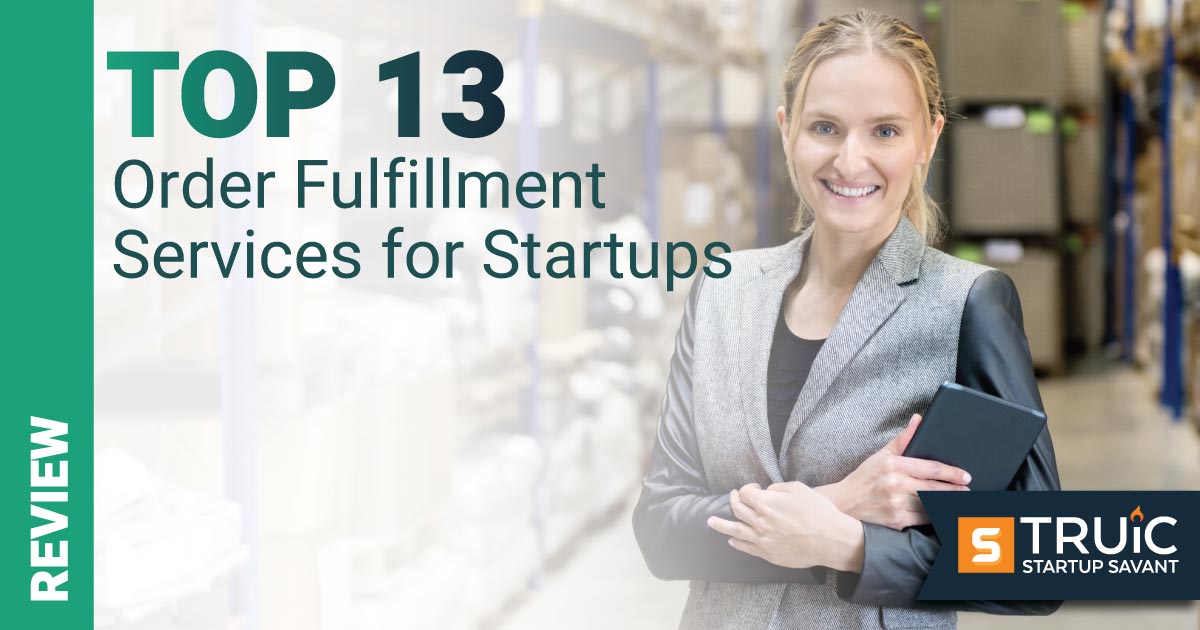11 Best Ecommerce Platforms for Startups in 2024

Last Updated: By Carleigh Foutch
If ecommerce is the bread and butter of your startup, it stands to reason that you need a strong platform that supports that capability. Customers don’t want to deal with slow webpage response times or not being able to find the product they want easily. Their experience should be seamless, as simple as clicking a few buttons and securely putting their payment information in.
In order to give them a five-star experience, you’ll need to find the best ecommerce websites available. The following list is full of great options for any entrepreneur who wants to bring their exciting product offerings directly to their consumers in a fast, easy way.
Best Ecommerce Platform for Startups: Shopify
Top Ecommerce Website Builders
While building a website can be done in 10 easy steps, startups with an ecommerce element have a few different things to consider when it comes to creating something that’s both intuitive and aesthetically pleasing for their customer base.
The following ecommerce website builders cover everything from product listings and layout, checkout experiences (both on the front and back end), website design, and more.
Jump Ahead:
Best Ecommerce Platform: Shopify
Build your online store fast with Shopify's simple and intuitive ecommerce platform. Get started with a free trial to create your shop today.
1. Shopify
Shopify is an all-in-one platform that allows entrepreneurs to create, grow, and manage all aspects of their ecommerce business. By uniting all aspects of commerce onto a single platform, users have the ability to track orders and manage inventory better than ever before.
Shopify merchants can be found all over the world, spanning over 100 countries, and are trusted by high-profile brands to be their primary ecommerce platform (like Kylie Cosmetics and Allbirds). With so many successful businesses utilizing the site, it’s clear that this is the best of the best when it comes to ecommerce.
Pros
- Any user can get their store up and running in minutes
- Can create or use an existing domain name on Shopify’s platform
- Brick-and-mortar inventory can be synced with the online platform
- Manage all aspects of your business on one platform
Cons
- No free pricing option available
- Product offerings may be overwhelming for smaller startups
2. GoDaddy
Many entrepreneurs might already be familiar with GoDaddy, as it’s a popular website and domain name platform. Their online store builder allows users to utilize AI in order to help bring their online store to life, making it as easy as a few simple keystrokes to create something out of nothing.
With the ability to integrate with the most popular online marketplaces (Instagram/Facebook, Etsy, Google, etc.), GoDaddy gives users an easy experience when it comes to creating the ultimate digital storefront for their customers.
Pros
- Create an online store for free
- Easily scale your business based on your growth rate
- Includes integrations with leading online marketplaces like Instagram, eBay, Etsy, etc.
- One dashboard needed to manage orders and inventory
Cons
- Must upgrade to access more design features
- Multiple payment service options may turn newer users away
3. Hostinger
Hostinger’s website builder is another AI-generated ecommerce platform that makes getting your online store up and running quick and simple. All you need to do is answer three simple questions, and AI will take care of the rest, complete with SEO-friendly content and branded copy.
However, if you’d rather have a little more control over your store’s layout, Hostinger also hosts plenty of editable templates for you to use. No matter which path you take, this platform has something for every startup.
Pros
- 24/7 live customer support
- Can integrate up to 20 different payment options
- Get your store up and running within minutes
- Sell up to 500 products with no transaction fees
Cons
- Not a ton of creative freedom in overall website design
- Payment options may vary depending on your location
4. BigCommerce
BigCommerce boasts itself as the “most trusted commerce solution provider.” They aim to make things easy for first-time users by offering them a no-code-required design tool. Simply drag and drop the design tools you want to use into the template and let BigCommerce do the rest. (However, if you do have coding experience, there’s an option for users to create a bespoke website from scratch if desired.)
With mobile optimization and a WordPress integration available, any entrepreneur will find what they need with this particular ecommerce builder. BigCommerce also offers the ability to create over 70+ native discounts and promotions — no scripting required —so you can hit the ground running the minute your ecommerce website launches.
Pros
- Fully customizable checkout experience
- Any user can get their store up and running in minutes, no coding experience required
- Multi-storefront operating capabilities from a single platform
- Offer a multitude of discounts and coupons to your customer base
Cons
- No subscription/recurring payment features available (must use third-party vendor)
- Yearly sales threshold could cost your business more than anticipated
5. Wix
Wix is another well-known ecommerce and website-building platform trusted by entrepreneurs everywhere. With over 200 million users, it’s clear to see why Wix is one of the most reputable and trustworthy sites to use.
Users can utilize both Wix’s website hosting and domain names when it comes to building their online storefront, and with plenty of free templates available, there’s definitely something for everyone, no matter your skill level.
Pros
- Any user can get their store up and running in minutes (no coding experience required)
- Automatic website backup capabilities
- Wix offers the ability to animate webpage text and other elements
- Over 800 free templates available for users
Cons
- Templates can’t be easily changed/edited
- Not the cheapest option when it comes to ecommerce sites
6. Squarespace
Squarespace is definitely made for the entrepreneur who wants to put their best design foot forward when it comes to their online storefront. Their customizable templates are always aesthetically pleasing and easy for any entrepreneur to manipulate in order to get their online store up and running.
Their latest tool (Squarespace Blueprint) also allows users to create or design their own website templates and includes a step-by-step guide on choosing your perfect design, font, layout, and more. Squarespace’s blogging feature is another great feature to utilize in order to add that extra personal touch to your store and keep customers coming back for more.
Pros
- Over 140 templates optimized for web & mobile use
- 24/7 customer support (mostly via chat)
- Squarespace Blueprint feature
- Blogging feature gives websites a more personal touch
Cons
- Not much sub-navigation is available when building your website
- Limited offering of extensions/apps available
7. WooCommerce
WooCommerce is an ecommerce plug-in available to WordPress users. WordPress and WooCommerce are free for both personal and commercial use, meaning you can install and start using them directly. WooCommerce also offers users its own payment processing solution: Woo Payments.
For startups with high order volume, users have the option to upgrade to Woo Enterprise, which is designed to “support the unique needs of businesses using WooCommerce at scale, with dedicated support, discounts, and more.”
Pros
- Any user can get their store up and running in minutes – no coding experience required
- Excellent store/admin account abilities (including giving customers the option to check out as a “guest”)
- Able to accommodate larger online stores stress-free
- Plenty of free templates available without having to upgrade
Cons
- Must upgrade to access more design features
- No centralized support for additional plug-ins and other outside features
8. Ecwid
For startups looking to add an ecommerce store to an already existing website rather than creating both from scratch, look no further than Ecwid. It offers plenty of robust integrations with already existing marketplaces like Instagram, Google, and Facebook and even offers users the ability to integrate with TikTok so you can tag products in your video posts.
Ecwid also allows users to add new sales channels and manage ad campaigns from one dashboard. With a quick and easy setup available to users, it’s a great option for new and experienced entrepreneurs alike.
Pros
- Sell up to 10 products for free, without paying Ecwid fees
- Can create or integrate an existing website with this platform
- Can host multilingual stores on the platform
- Quick & easy setup experience
Cons
- Not a ton of creative freedom in overall website design
- Standalone store builder (does not include the ability to create multiple webpages)
9. Weebly
Weebly's ecommerce feature (Weebly Ecommerce) is powered by the payment app Square, and offers users a fully integrated shopping cart and secure checkout experience. It allows users to track their inventory as well as offer a detailed product search on the customer-facing side – all from one singular dashboard.
Weebly Ecommerce allows US users to sell an unlimited number of products for free, with more design features available in their upgraded tiers.
Pros
- Upgraded tiers can fit into any startup’s budget
- Semi-automatic built-in shipping and tax calculator
- Quick and easy setup experience
- Unlimited products without paying any fees (US users only)
Cons
- Standard payment method is only available on the most expensive tier plan
- No additional integrations available with other platforms
10. UENI
UENI sets itself apart by building professional multi-page websites for small businesses in just 7 days. With UENI, entrepreneurs get a completely custom-designed site along with hosting, maintenance, a domain name, email, and ecommerce integrations starting at just $8.99/month after an initial $199 setup fee.
Their done-for-you model means you don't have to choose templates or widgets. Their team of designers and copywriters craft a website tailored to your business based on your vision, assets, and goals shared via a simple questionnaire. The drag-and-drop editor also makes it easy to edit anything later yourself.
Pros
- Unlimited product listings at 0% commission
- 30-day money-back guarantee
- Integrated shopping cart and payments
- Domain, email, hosting, and SSL certificate included
Cons
- Less design flexibility than DIY site builders
- Limited compared to advanced platforms like Shopify
11. Shift4Shop
Shift4Shop (formerly known as 3dcart) is a customizable ecommerce platform that boasts several state-of-the-art features such as search engine optimization, sales tracking, and more. With over 200,000 customers using their platform to sell their products, it’s easy to see why Shift4Shop is a great option when it comes to helping the ecommerce part of your business thrive.
Shift4Shop is free to use, and higher volume businesses that require an upgrade start at $29 per month. The platform accepts many different types of payments, including credit or debit cards, Apple Pay and Google Pay, gift cards, Bitcoin, and more.
Pros
- Great option for startups looking to keep costs low
- Plenty of impressive features are available for free
- Unlimited product listings
- Any user can get their store up and running in minutes, with no prior coding experience
Cons
- Less-than-stellar customer support
- Semi-confusing user interface


